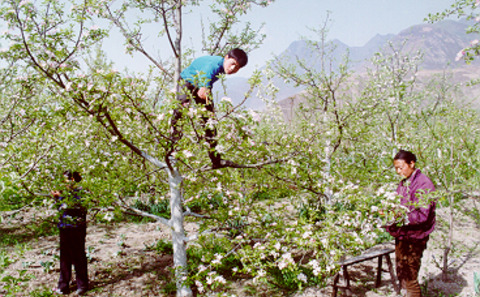Bees pollinate over three quarters of worldwide flora – in this most important process, the humble bee completes the life cycle of thousands of plant species, making their survival and propagation possible.
The rapid decline of bees due to our knack for ‘destructive development’ may translate into a catastrophe which makes a meteor impact look like a walk in the park, for once such creatures become extinct – there is no turning back.

Would you imagine a life without kiwis, cashews, citrus fruits, apples, grapes and berries?
These are just a few examples from an exhaustive list of life’s pleasures which will not be present without bees. So rather than simply talking about this phenomenon, we decided to get up and do something about it!
On the onset of spring and summer, bees create new queens and swarm in large numbers to spread and colonise new territory. What happens naturally – ie the bee swarm gathering under a tree, or in a cave to create a new hive in peace will probably never occur in most urban areas. A swarm might instead gather into a shaft, garden or between roof slabs – with the panicked owner phoning the local pest control agency for their subsequent eradication!
It was estimated in Malta alone, that anywhere between 400-800,000 bees die annually by such methods – we dare not estimate how much more are killed in similar scenarios on a global scale..

This is where our initiative comes in: After liaising with a genuine and local bee expert, a service of rescuing bee swarms at zero-cost has been kick-started. So anyone who happens to encounter a bee swarm will have the added incentive of utilising this service over that of a pest-control company.
After successfully rescuing the reported swarm, it is then passed through a quarantine period lasting anywhere between 1-12 weeks. This allows for the monitoring and curing of possible diseases. After this, the swarm is then released into the wild to help conserve such a delicate, yet most important species.
Since this service has been active, (March 2015) – a total of
3 SUCCESSFUL CAPTURES HAVE BEEN RECORDED! This brings a total rescue of approx 45,000 bees in Spring 2015 alone!
Photos of the successful captures (Credit: BSM)



We encourage readers from around the world to engage in similar activities within their own regions to help make a lasting and rewarding change towards bee conservation.
We can supply full information on the process of saving honey bees and share any other helpful info we have gathered so far..
For more information visit: Bee Savers Malta



July 2, 2015 at 11:44 PM
Nice, my friends The Honey Ladies, would most definitely appreciate this!